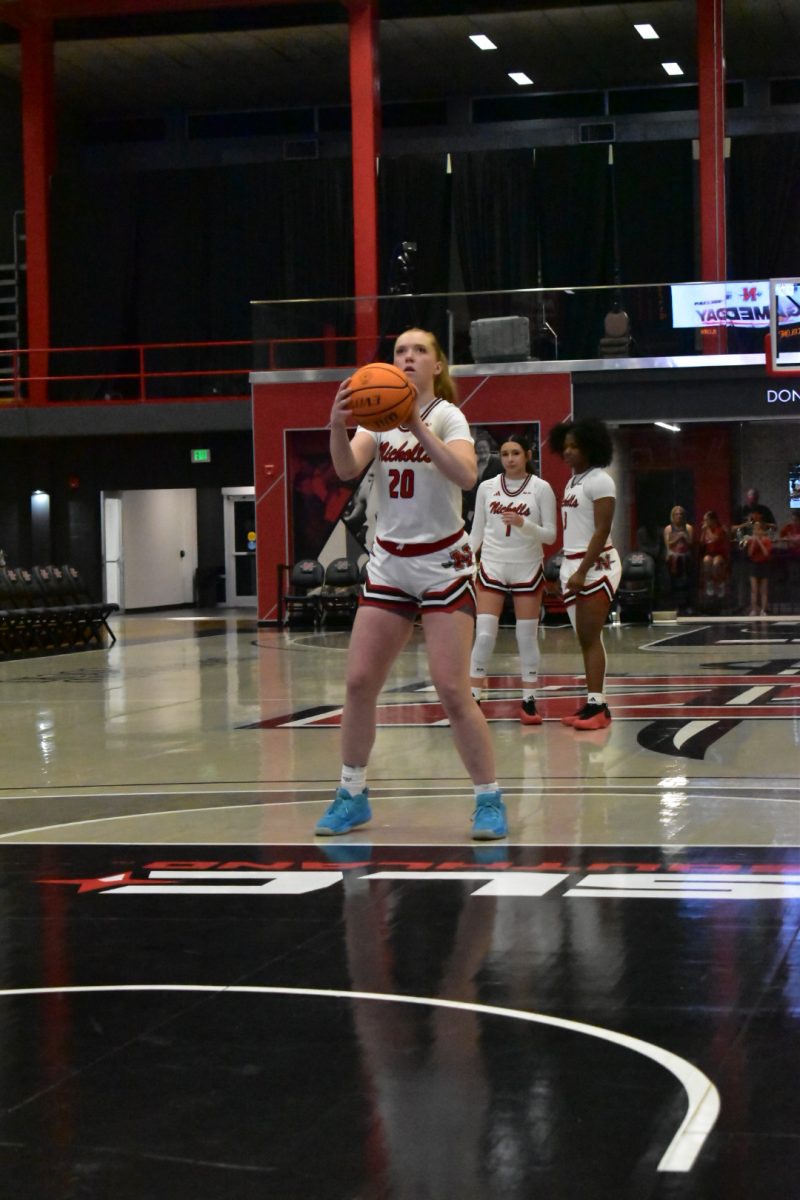Students in Greek organizations at Louisiana State
University and Nicholls State University share similar
experiences, but the size of the universities create
differences.
At Nicholls State University, about 4 percent of students
belong to a sorority or fraternity, while at Louisiana State
University about 10 percent of students participate in
Greek life. The differences between Greek life at Nicholls
and LSU are size, financial, scholarship standards and
the role of the Greek governing boards.
There are more members in a LSU new member class,
a group of girls selected from formal recruitment, than
there are in a sorority at Nicholls. The average new
member class at LSU is 75, while the average sorority at
Nicholls has 50 members.
Erin Rossignol, a Delta Zeta at LSU, explains the size
difference. “When I first became a member of Delta Zeta, I
was only close to my pledge class. I did not get to know
the other girls as well, until we began to prepare for
recruitment in the summer,” she said.
At Nicholls there is a tight bond between members of a
sorority, explains Stacy Reulet, a Phi Mu at Nicholls,
“although all of Phi Mu’s members are not best friends,
we can rely on each other if we need anything.”
Because about 900 people participate in recruitment at
LSU, most chapters require a pledging recommendation,
which is a written statement from an alumnae member of that
sorority, Rossignol said.
“Recommendations are very important because it is
difficult to meet 900 girls and decide who is right for our
chapter. An alumnae’s impression lets us know a little
more about the girl,” she said.
At Nicholls, recommendations can help during
recruitment, but it is not necessary for a girl to get an
invite to a chapter, Larke Bilello, a member of Delta Zeta
at Nicholls said.
Another difference between LSU and Nicholls Greeks is
finances. One semester of Greek life at Nicholls costs
about $350, while a semester at LSU costs $2,195 if the
member lives in the sorority or fraternity house. If a
member chooses not to live in the house, the cost is
about $1,285. The fee a potential member must pay to
go through formal sorority recruitment at LSU is $63,
while it is $15 at Nicholls.
“Belonging to a fraternity at LSU is expensive because
chapters need to carry more insurance because there
are so many members,” Buster Caballero, a member of
Lambda Chi Alpha at LSU said. He added that living in
the fraternity house and the meal ticket also accounts for
much of the expense.
At LSU and Nicholls, there is no required grade point
average to participate in recruitment, however each
sorority and fraternity has a minimum GPA for its chapter.
If a potential member does not have that GPA, chances of
pledging are reduced. The average for a sorority at LSU
is from 2.7 to 3.0, and for Nicholls it is 2.4 to a 2.7.
Every year fraternities and sororities at LSU have to go
through a Greek Assessment. The individual chapters
are judged on a scale of one to five based on, campus
involvement, community service, education of members
on various topics, academics and chapter operations. If
a chapter receives a low assessment score they can be
put on probation and eventually suspended from the
campus.
Both LSU and Nicholls have central boards which
oversee their Greek organizations. The LSU Greek
Steering Committee is made from four sorority members
and four fraternity members.
The Greek Steering Committee holds a leadership
retreat for the new chapter presidents called Impact
Weekend, where they learn to improve the system’s
faults beginning at a chapter level. They also host a New
Member Retreat where all of the new fraternity and
sorority members get to learn about Greek life and their
responsibilities.
The Nicholls Greek Council serves as a governing board
over all Greek organizations. If there are any problems
with policy or recruitment, the Greek council decides the
solution. The Nicholls Greek Council is made up of the
president of each Greek organization.
Both the Nicholls Greek Council and the LSU Greek
Steering Committee organize Greek Week. At LSU,
Greek Week is a competition between a team of fraternity
and sorority members. Nicholls’ Greek Week is not a
competition.
“Greek Week is supposed to build unity in the Greek
community through friendly competition,” LaToya Bailey,
Greek advisor at Nicholls said.
All fraternities and sororities have a philanthropy they
support. Phi Kappa Theta at Nicholls will have Frats at
Bat to support Children’s Miracle Network in April.
“We get out there, have a good time and raise money for
the children, and at the end of the day we get to go home
feeling better about ourselves because we did
something good,” Scott Duplantis, a Phi Kappa Theta
member at Nicholls said.
Often the Greek community supports one philanthropy. At
LSU the Greeks participate in Up `Til Dawn, a 24-hour
fund-raiser for St. Jude’s Children’s Hospital. During
Greek Week at Nicholls, all proceeds from Songfest were
donated to a local charity, and an Easter egg hunt was
held for the pre-kindergarten children.
Regardless of the size of the chapter, brotherhood and
sisterhood is a benefit of Greek life. Being a Lambda Chi
Alpha has meant, “making friendships that will last
forever” to Caballero.
Carrie Thomas, a Phi Mu at Nicholls echoes Caballero’s
sentiments. “These are my best friends, I know I will
always stay in touch with them,” she said.
Greek systems at Nicholls, LSU vary greatly
Deanna Duet, Contributing writer
•
April 26, 2001
0
More to Discover







